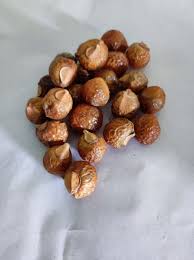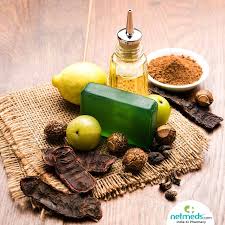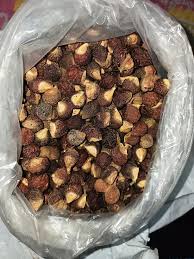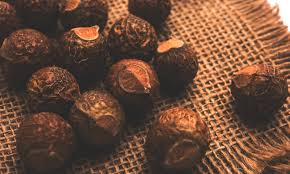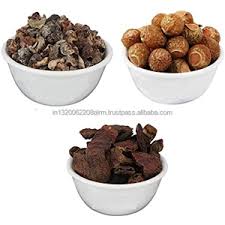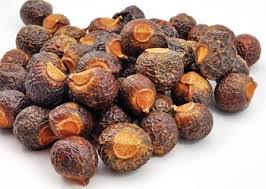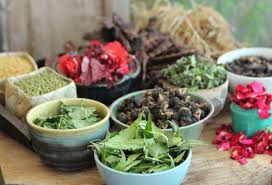How Amla Helps in Reducing Inflammation in the Body
Chronic inflammation is at the root of many modern health problems, including joint pain, heart disease, skin disorders, digestive issues, and even autoimmune conditions. While conventional treatments often involve synthetic drugs or anti-inflammatory medications, Ayurveda offers a powerful natural solution—Amla, also known as Indian gooseberry.
Amla is one of the most revered fruits in Ayurvedic medicine and has been used for centuries to heal the body, strengthen immunity, and combat internal inflammation. Rich in vitamin C, polyphenols, and potent antioxidants, amla works holistically to reduce inflammatory responses at the cellular level.
In this comprehensive guide, we’ll explore how amla helps in reducing inflammation, the science behind its healing properties, and practical ways to include it in your daily wellness routine.
Long Description
- Understanding Inflammation and Its Impact
Before exploring how amla helps, it’s important to understand what inflammation is. Inflammation is the body’s natural immune response to infection, injury, or toxins. It plays a critical role in healing. However, chronic inflammation can be harmful and is linked to diseases like:
Arthritis and joint disorders
Cardiovascular disease
Diabetes
Asthma and allergies
Autoimmune diseases
Skin conditions like psoriasis and eczema
Chronic inflammation can go unnoticed for years, silently damaging tissues and organs.
- Why Amla is a Natural Anti-Inflammatory
Amla offers a broad spectrum of bioactive compounds that make it a powerful anti-inflammatory remedy:
Vitamin C (Ascorbic Acid): Amla is one of the richest natural sources of vitamin C, which reduces oxidative stress and supports immune function.
Antioxidants: Amla contains gallic acid, ellagic acid, emblicanin A and B, and flavonoids—all known to fight inflammation at the cellular level.
Polyphenols: These plant compounds protect tissues from inflammatory damage and help balance immune responses.
Anti-bacterial and antiviral properties: These help reduce infections that often cause or worsen inflammation.
Adaptogenic effect: Amla helps the body cope with physical and emotional stress, reducing inflammatory triggers.
- Health Conditions Improved by Amla’s Anti-Inflammatory Action
A. Arthritis and Joint Pain
Amla reduces inflammation in the joints and improves flexibility. Its antioxidant content protects cartilage from oxidative damage, while vitamin C supports collagen formation for joint strength.
B. Inflammatory Bowel Conditions
Amla soothes the digestive tract and is beneficial in conditions like colitis and gastritis. It cools internal heat and promotes better gut function.
C. Skin Inflammation and Eczema
Due to its cooling nature and antioxidant content, amla helps reduce redness, swelling, and flare-ups associated with skin disorders.
D. Autoimmune Disorders
Amla may help modulate immune responses, reducing flare-ups in autoimmune conditions like lupus or rheumatoid arthritis when used as a supportive remedy.
E. Cardiovascular Health
Inflammation in blood vessels is a major factor in heart disease. Amla improves endothelial function, reduces cholesterol, and soothes vascular inflammation.
F. Allergies and Respiratory Inflammation
Amla’s anti-allergic properties help reduce symptoms of asthma, bronchitis, and seasonal allergies by lowering histamine response.
- Scientific Research Supporting Amla’s Anti-Inflammatory Benefits
Modern studies have confirmed amla’s traditional role in reducing inflammation:
A 2011 study published in the Journal of Medicinal Food found that amla extract significantly reduced markers of inflammation in lab studies, including TNF-alpha and IL-6.
Research in the Phytotherapy Research Journal highlighted amla’s role in suppressing oxidative stress and inflammation in patients with arthritis.
Clinical studies on diabetic and cardiovascular patients also noted reductions in C-reactive protein (CRP), a key inflammation marker, after regular amla supplementation.
These studies reinforce the traditional Ayurvedic wisdom that amla is both preventive and therapeutic when it comes to inflammation.
- How to Use Amla to Reduce Inflammation
Both internal and external methods of using amla can support inflammation reduction.
A. Amla Juice
Drink 15–20 ml of fresh amla juice mixed with warm water every morning on an empty stomach. This is one of the most effective ways to flush toxins, reduce oxidative stress, and support liver detox.
B. Amla Powder with Honey
Take 1 teaspoon of amla powder with 1 teaspoon of honey once or twice daily. This combination soothes internal tissues and boosts immunity.
C. Amla Tea
Boil amla slices or powder in water with a pinch of turmeric and ginger. Drink this herbal infusion to relieve inflammation in the joints and gut.
D. Amla Capsules
If you prefer a supplement, choose organic amla capsules from a trusted brand. Follow recommended dosage and consult your healthcare provider if needed.
E. Amla in Food
Include raw amla slices, chutneys, or pickles in your daily diet to get its anti-inflammatory benefits in a flavorful way.
- Amla and Liver Detox for Inflammation Control
The liver plays a central role in managing inflammation, as it filters toxins and inflammatory compounds from the blood. A sluggish liver can worsen chronic inflammation.
Amla acts as a natural liver tonic, enhancing bile production and liver enzyme function. Regular use helps:
Detoxify the bloodstream
Eliminate waste products
Improve metabolism
Strengthen the body’s natural detox pathways
This detoxification effect contributes significantly to inflammation reduction throughout the body.
- Amla in Ayurveda for Inflammation
In Ayurveda, amla is classified as a Rasayana, or rejuvenating herb, that balances all three doshas—Vata, Pitta, and Kapha. It’s especially beneficial for pacifying Pitta, which is associated with inflammation, heat, and irritation in the body.
According to Ayurvedic texts, amla:
Cools internal heat
Nourishes dhatus (body tissues)
Rejuvenates and cleanses the blood
Supports Ojas (vital energy), which reduces susceptibility to disease
This makes amla a vital ingredient in many Ayurvedic formulations for skin diseases, liver conditions, arthritis, and fever.
- Best Practices and Tips for Using Amla for Inflammation
To get the best results from amla:
Use only organic, chemical-free products
Start with small doses and increase gradually
Drink plenty of water to help with detox
Combine amla with other anti-inflammatory herbs like turmeric, ginger, or ashwagandha
Use consistently for several weeks to see visible benefits
Avoid overconsumption, especially on an empty stomach if you have a sensitive digestive system.
- Precautions and Side Effects
Amla is generally safe, but you should be aware of:
Mild acidity or stomach discomfort if taken in excess
Not recommended in large amounts for individuals with low blood pressure
Always consult a doctor if you’re on medication or managing chronic conditions
Avoid synthetic or flavored amla products that contain sugar or additives
For pregnant or breastfeeding women, it is advised to consult a practitioner before regular use.
- Who Can Benefit the Most from Amla for Inflammation?
Amla is suitable for people dealing with:
Joint pain, stiffness, or arthritis
Skin flare-ups or chronic eczema
Digestive issues like acidity or IBS
Chronic fatigue linked to inflammation
Allergies and respiratory inflammation
Heart and liver conditions
Hormonal imbalances related to inflammation
Its adaptogenic and detoxifying properties make it ideal for anyone seeking to lower inflammation naturally and holistically.
Conclusion
Chronic inflammation is a silent contributor to many lifestyle diseases, and managing it effectively is essential for long-term health. Amla, with its rich antioxidant, anti-inflammatory, and detoxifying properties, offers a natural and time-tested solution rooted in Ayurveda and backed by science.
Whether you choose amla in the form of juice, powder, capsules, or fresh fruit, its regular and mindful use can significantly reduce inflammation, boost immunity, and improve overall vitality. As with all herbal remedies, consistency, purity, and balance are key.
Integrate amla into your daily routine and experience the benefits of this powerful fruit in restoring balance, health, and harmony in the body.


